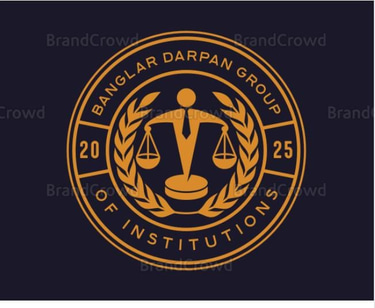
4. Interlocutory Applications (Civil, Writ and Criminal)
1. Addition of Party 0010
₹20000.00₹19000.00
A criminal matter is any issue or case that involves a crime, defined as conduct deemed threatening, harmful, or dangerous to public safety and welfare, and which is prohibited and punished by law. These matters are distinct from civil matters and are handled through formal legal procedures, such as investigations and trials, with the potential outcome of fines, imprisonment, or other forms of punishment for the convicted individual.
Key Characteristics
Involves Crime:
A criminal matter arises from an alleged or proven act of crime, such as murder, assault, theft, or fraud.
Government Prosecution:
Unlike civil cases, the government (represented by a prosecutor) initiates and prosecutes a criminal matter against an accused person (the defendant).
High Burden of Proof:
The government must prove the defendant's guilt "beyond a reasonable doubt," a very high legal standard.
Purpose:
The goals of criminal proceedings are to punish the offender, ensure justice for the victim and society, and deter future criminal acts.
Legal Procedures:
A formal process of investigation, arrest or summons, trial, and judgment follows the commission of a crime.
Examples of Criminal Matters assault, murder, theft, sexual assault, and fraud.
Distinction from Civil Matters
Focus:
Civil matters often deal with disputes between individuals or entities, focusing on compensation or resolution rather than punishment.
Parties:
In a civil matter, a plaintiff brings a claim against a defendant, while in a criminal matter, the government brings charges against the defendant.
Outcomes:
Civil cases typically result in monetary damages or specific actions being ordered, whereas criminal cases can lead to imprisonment, fines, or other penalties affecting liberty.
Contact & Support
Call Us : 91236-09221
© 2025. All rights reserved by BDGI
Email Us : banglaardarpan@gmail.com
Facebook Page : Banglar Darpan Group of Institutions.
Visit Us : Flat No 3A, 3rd Floor, 8A, Sapgachi 1st Lane, Kolkata 700039.Police Station : Tiljala,
WhatsApp Us : 89815- 96759
